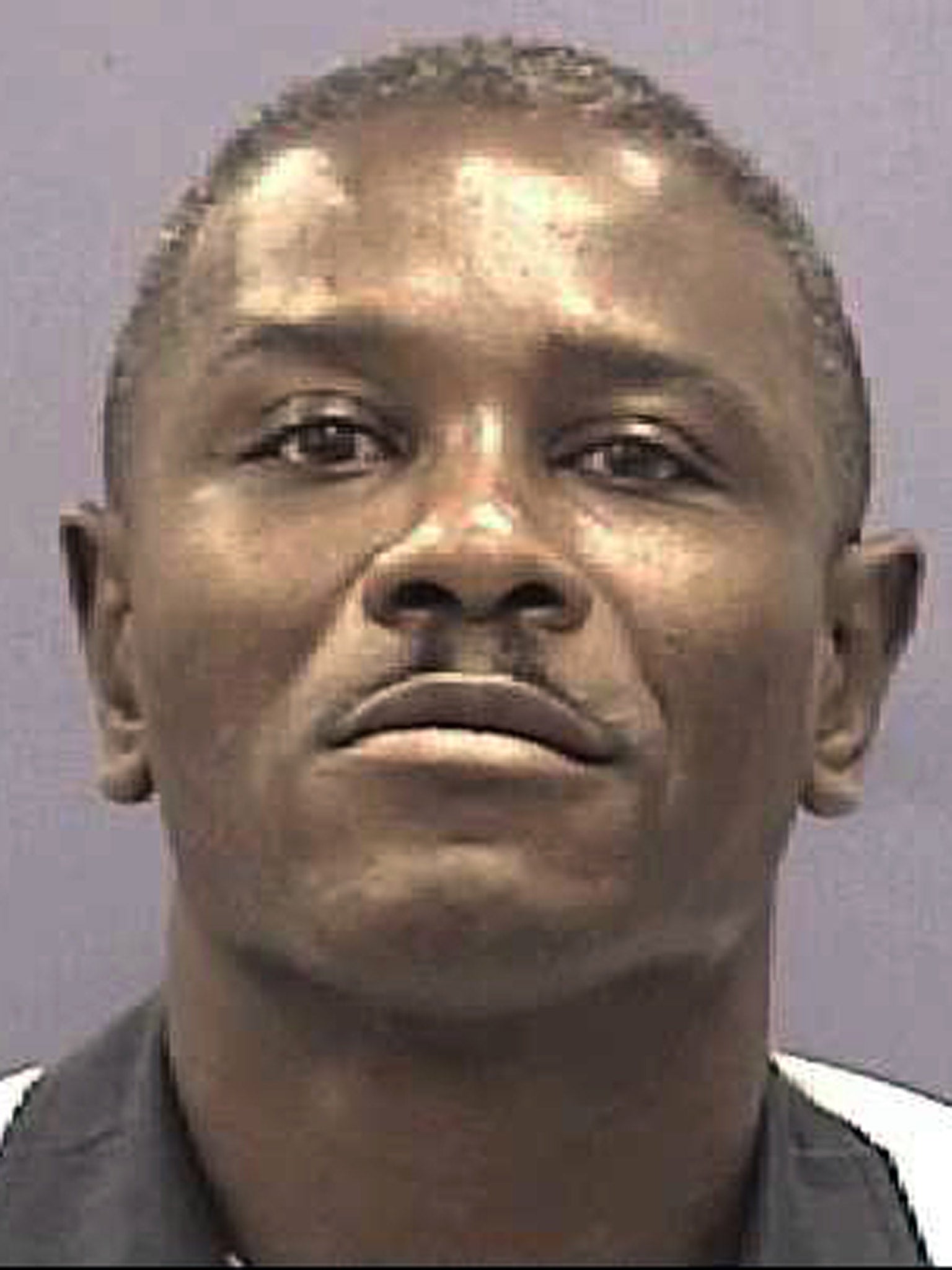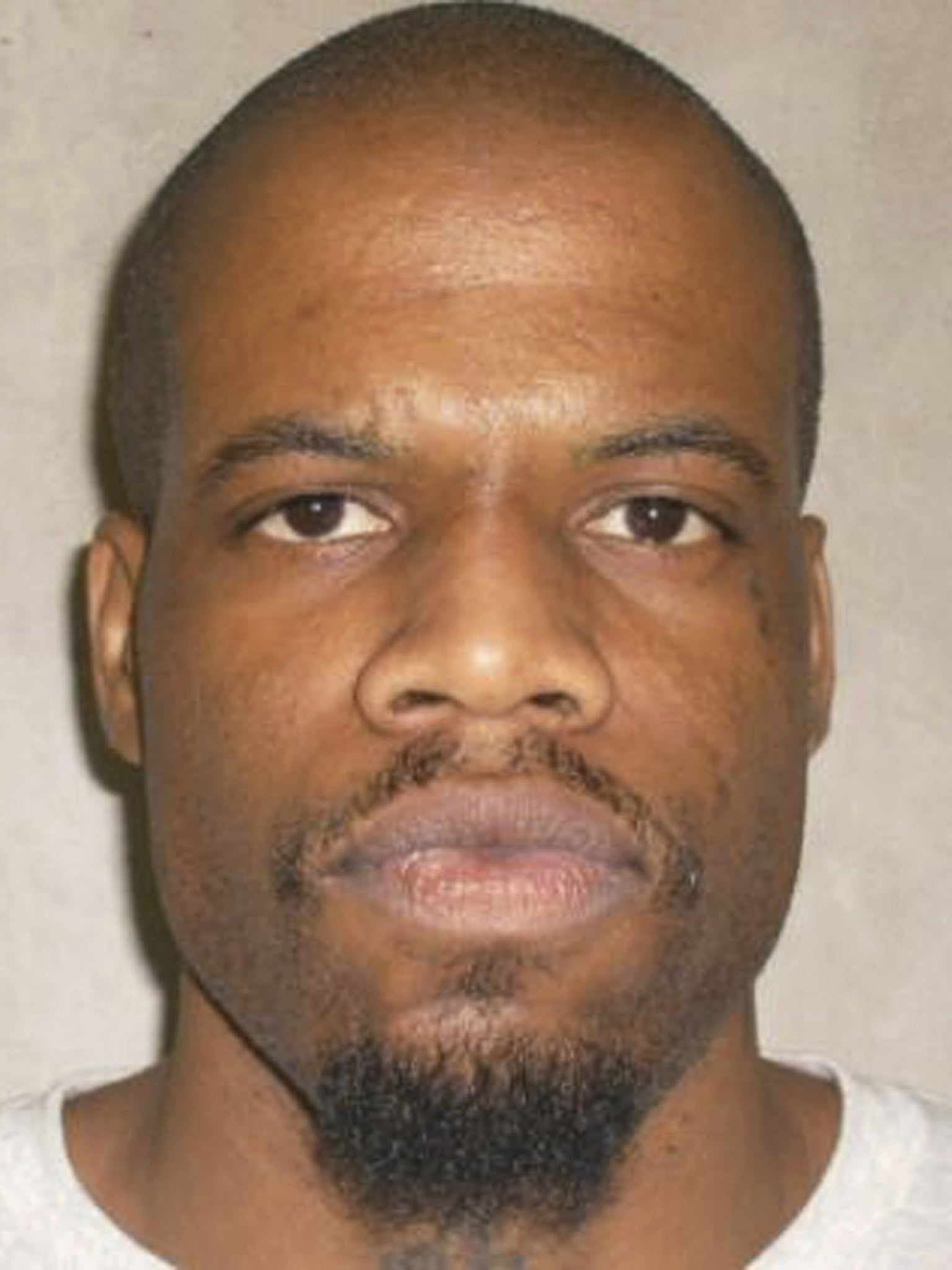Death penalty returns to the US following April's botched lethal injection

Your support helps us to tell the story
From reproductive rights to climate change to Big Tech, The Independent is on the ground when the story is developing. Whether it's investigating the financials of Elon Musk's pro-Trump PAC or producing our latest documentary, 'The A Word', which shines a light on the American women fighting for reproductive rights, we know how important it is to parse out the facts from the messaging.
At such a critical moment in US history, we need reporters on the ground. Your donation allows us to keep sending journalists to speak to both sides of the story.
The Independent is trusted by Americans across the entire political spectrum. And unlike many other quality news outlets, we choose not to lock Americans out of our reporting and analysis with paywalls. We believe quality journalism should be available to everyone, paid for by those who can afford it.
Your support makes all the difference.Georgia has become the first state to recommence executing death row inmates since a botched lethal injection in Oklahoma in April fanned the flames of the death penalty debate in the US. Convicted murderer Marcus Wellons was this week denied a final plea for clemency by the state’s parole board. Wellons, 59, was sentenced to death by lethal injection for the 1989 rape and murder of his 15-year-old neighbour, India Roberts, in Atlanta.
After a failed last-minute appeal on Tuesday evening over the source of the drugs, his was the first execution carried out in the US since 29 April, when 38-year-old Clayton Lockett died of a heart attack after Oklahoma executioners bungled his lethal injection. Lockett’s execution was called off, but doctors were unable to save him. An autopsy later revealed that the intravenous line containing the deadly drug cocktail had been improperly inserted. President Barack Obama described the episode as “deeply troubling”.
In all, nine executions have been stayed or postponed since Lockett’s, but Wellons’s death was the first of three lethal injections in less than 24 hours, with inmate John Winfield due to die in Missouri on Wednesday night, and John Ruthell Henry facing execution in Florida at 6pm on Wednesday.

Long thought of as the most humane method of capital punishment, lethal injection has come under greater scrutiny following several controversial incidents, including Lockett’s death and that of Dennis McGuire, a 53-year-old convicted killer from Ohio, whose January execution took 26 minutes, during which McGuire snorted and gasped repeatedly.
The drugs used in executions have become increasingly scarce since the EU issued a sweeping ban on their export to US death penalty states, many of which have resorted to using untested combinations of drugs obtained from barely regulated "compounding pharmacies". Georgia has sourced pentobarbital from an undisclosed compounding pharmacy to be used in Wellons’s execution. He will be the first inmate executed in the state since it became legal for officials to keep the details of execution drugs and their origins secret.
The authorities in Missouri and Florida have also refused to reveal the identities of their lethal injection drug suppliers. Missouri, like Georgia, uses pentobarbital in its executions, while Florida uses a combination of three drugs: midazolam hydrochloride, vecuronium bromide and potassium chloride. Following Lockett’s death, a bipartisan panel of former lawmakers and legal experts produced a report recommending greater transparency from states about the drugs used in executions, and an end to the three-drug “cocktail” method, in favour of single-drug injections.
“Every time there’s a problem with an execution, it’s another question mark against the process,” said Professor Deborah Denno, an expert on execution methods at the Fordham University Law School in New York. The death penalty, Denno went on, “has taken a real hit in credibility among departments of corrections as a result of the Clayton Lockett execution. There’s going to be a lot of scrutiny on every execution that proceeds from now on.”
The scheduled executions in Missouri and Florida are both being disputed. Winfield shot three women in St Louis in 1996, killing two of them. The third, who survived but was blinded, was Carmelita Donald, the mother of Winfield’s two children. Their daughter, Symone Winfield, has pleaded with Missouri Governor Jay Nixon for clemency.
Henry stabbed and killed his estranged wife Suzanne Henry and her five-year-old son from a previous relationship in Florida in 1995. At the time he was on parole, having served time for the murder of his common-law wife, Patricia Roddy, in 1976. His lawyers claim that he is both mentally ill and intellectually disabled.
The death penalty still exists in 32 US states, and more than 3,000 inmates sit on death row across the country. However, only 10 of those states have carried out executions in recent years. US courts imposed 80 death sentences in 2013, down from 315 in 1994. There were 39 executions nationwide last year, compared to 98 in 1999. Before Wellons, there have been 20 so far in 2014. Florida and Missouri are among the most prolific death penalty states, executing five and four men respectively so far this year. They are surpassed only by Texas, which has executed seven.
Lethal injection remains the primary form of execution in all death penalty states, though the recent controversies have led to discussions about reviving other methods. In Wyoming and Utah, lawmakers have called for the re-introduction of the firing squad, while in Louisiana, prisons chief James LeBlanc recently urged the state to consider nitrogen asphyxiation as a more reliably “humane” execution technique than lethal injection.
Join our commenting forum
Join thought-provoking conversations, follow other Independent readers and see their replies
0Comments